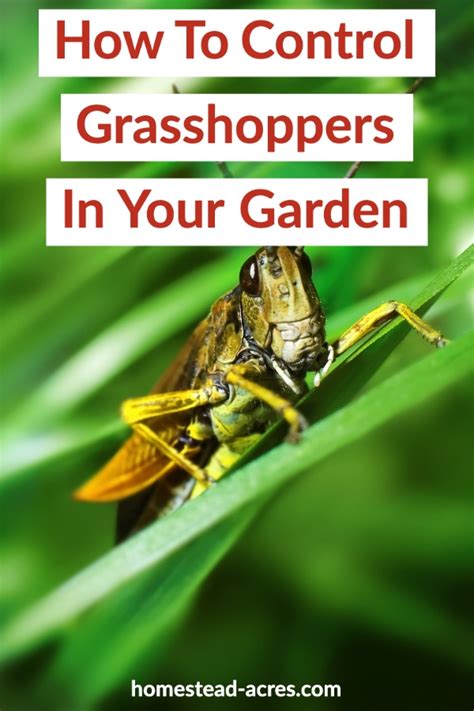How to Get Rid of Grasshoppers: A Comprehensive Guide
Grasshoppers. Those seemingly innocuous insects can quickly become a major nuisance, decimating gardens and leaving behind a trail of destruction. But don't despair! This comprehensive guide will equip you with the knowledge and strategies to effectively control and eliminate grasshopper infestations, saving your precious plants and restoring peace to your yard.
Understanding the Enemy: Grasshopper Behavior and Life Cycle
Before tackling the problem, it's crucial to understand your enemy. Knowing grasshopper behavior and life cycles helps you implement the most effective control methods.
- Life Cycle: Grasshoppers typically undergo incomplete metamorphosis, progressing through egg, nymph, and adult stages. Understanding these stages helps you target control efforts at the most vulnerable points.
- Feeding Habits: Grasshoppers are voracious eaters, with a diet primarily consisting of plants. Identifying their preferred food sources can help you protect vulnerable plants.
- Habitat: Grasshoppers thrive in areas with ample vegetation and shelter. Knowing their preferred habitats will assist in targeted control measures.
Effective Grasshopper Control Methods
Several methods can effectively combat grasshopper infestations. The best approach often involves a combination of techniques.
1. Natural Predators: Encouraging Beneficial Insects
Nature offers a powerful solution. Introducing beneficial insects and other predators can significantly reduce grasshopper populations.
- Birds: Attract birds to your yard by providing bird feeders and nesting boxes. Many bird species feed on grasshoppers.
- Spiders: Maintain a healthy spider population, as spiders are natural predators of grasshoppers. Avoid using pesticides that could harm them.
- Toads and Frogs: Create a welcoming environment for toads and frogs by providing moist habitats. These amphibians are efficient grasshopper hunters.
2. Physical Removal: Manual Control
For small infestations, manual removal can be effective.
- Handpicking: This is labor-intensive but effective for small numbers of grasshoppers.
- Vacuuming: A shop vacuum can effectively suck up grasshoppers, particularly from plants and smaller areas.
3. Barriers and Traps: Preventing Infestations
Preventative measures are often more effective than reactive ones.
- Row Covers: These protect plants from grasshopper damage by creating a physical barrier.
- Sticky Traps: These traps can effectively catch grasshoppers, particularly nymphs. Placement is key for optimal effectiveness.
4. Chemical Control: Pesticides as a Last Resort
Chemical pesticides should be used as a last resort, only after exploring other options. Always follow label instructions carefully.
- Insecticidal Soaps: These are relatively less harmful to beneficial insects and the environment.
- Pyrethroids: These are synthetic pesticides that are effective against grasshoppers but can also harm beneficial insects. Use with caution.
- Carbaryl (Sevin): Another broad-spectrum insecticide, use only as a last resort and follow all safety precautions.
Preventing Future Infestations
Proactive measures are crucial in preventing future grasshopper problems.
- Regular Lawn Maintenance: Keep your lawn mowed short to reduce hiding places.
- Clean Up Debris: Remove fallen leaves and other debris that provides shelter for grasshoppers.
- Water Management: Proper irrigation prevents dry conditions that attract grasshoppers.
Choosing the Right Method: Factors to Consider
The best grasshopper control method depends on several factors:
- Severity of Infestation: A small infestation may be manageable with manual removal, while a large infestation may require a more comprehensive approach.
- Environmental Concerns: Consider the impact on beneficial insects and the environment when choosing a control method.
- Plant Sensitivity: Some plants are more sensitive to pesticides than others.
By understanding grasshopper behavior, employing a multi-pronged approach, and implementing preventative measures, you can effectively control and eliminate these pests, protecting your garden and enjoying a grasshopper-free environment. Remember to always prioritize environmentally friendly methods whenever possible.
